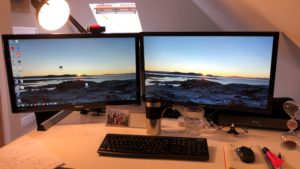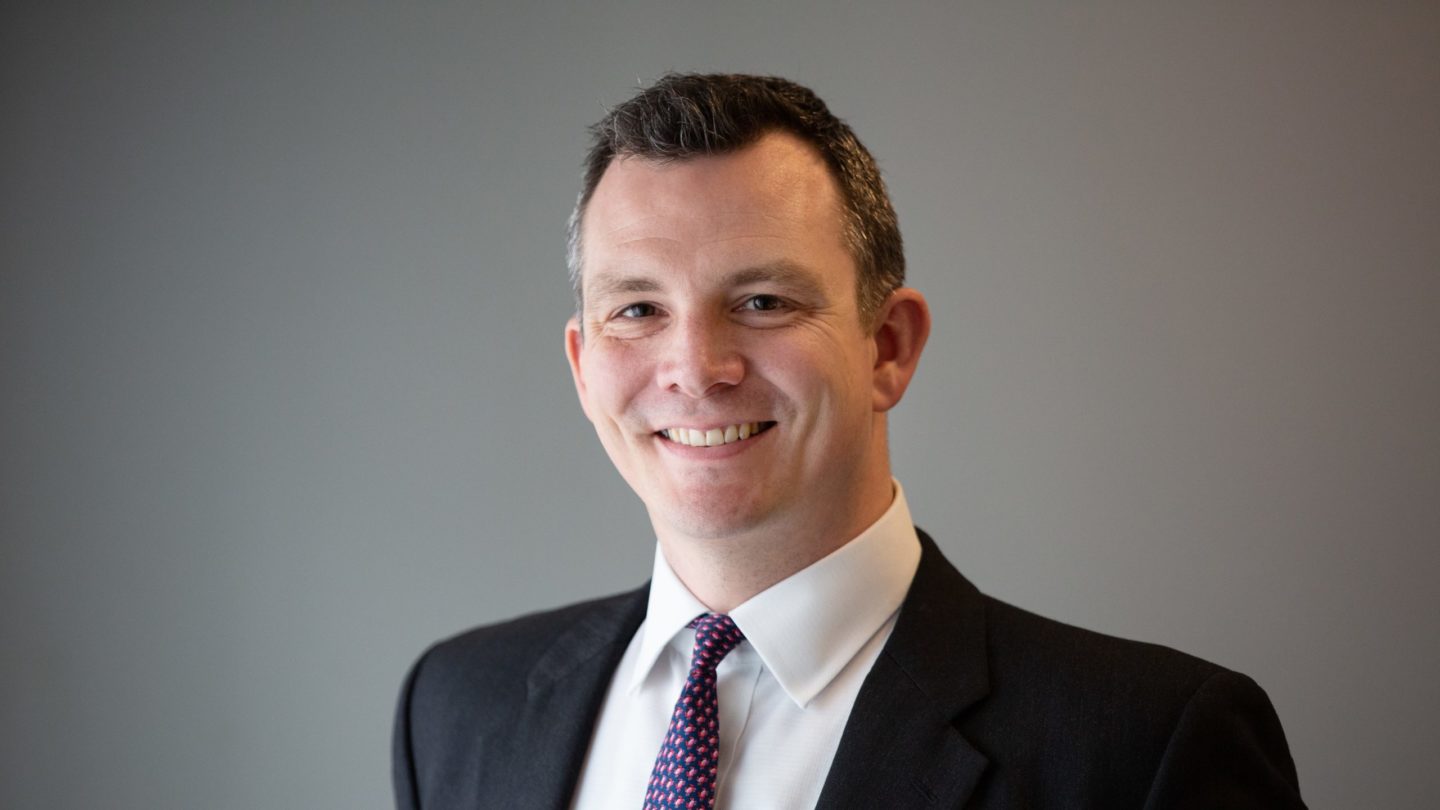How has the coronavirus affected your day-to-day work?
We have been able to replicate a virtual face-to-face office experience, as well as an office routine – albeit from home. This is key to ensuring the work gets done as normal and to keep engaging with clients and business partners, but also to maintain the staff social interaction, which is crucial.
From a portfolio perspective there is no change. We focus on client outcomes and building well-diversified portfolios means investors are not overly exposed to the risks inherent in any single business or asset class. While today might not yet be the time to be bold and take on additional risk, the longer-term opportunities are attractive and so it also does not seem to be the right time to capitulate. Patience will pay off.
The key is determining whether the market has effectively priced in the impacts of the contemporaneous supply and demand shock we are experiencing. We think balance sheet strength will be rewarded in the future as poorly run companies could go into liquidation, so we have made a tilt towards quality equity.
 What has been your biggest contributor to performance since the coronavirus hit markets? What has been your biggest detractor?
What has been your biggest contributor to performance since the coronavirus hit markets? What has been your biggest detractor?
There haven’t been many places to hide over this period as correlations for most asset classes have quickly shifted close to 1. We are very grateful for our treasury positions and our holding in gold. Even these two ports in a storm have had some difficult days in the past few weeks, showing how mixed market moves have been.
Do you have any behavioural mechanisms in place for navigating the market volatility?
When markets fall in the magnitude they have recently, behaviourally it is tempting to run from the risk. This is an inbuilt survival mechanism that is very useful for our ancestors’ fecundity but less helpful in markets. In fact, when the market moves as it has, an investor’s impulse is to buy. We have resisted our impulse to do too much as there are so many unknowns presently in terms of how great the impact will be in the short term on both economies and businesses.
What has surprised you most about markets during the coronavirus sell-off?
The most interesting element for me is the intellectual progression of market participants from ambivalence, through nervousness to the selling that looked a lot like outright panic at its worst. The severity of the falls in this market sell-off is significant and there have not been many places to hide. Intra market covariance all but disappeared in early March as indiscriminate selling took place in all asset classes. The good news is that some babies were likely thrown out with the proverbial bath water and so the firms that will prosper in a post-Covid world are trading cheaply today.
What feedback have you had from clients since the coronavirus sell-off?
We are very fortunate to have a globally diversified client base. We are also very lucky to have clients that are well informed and have an understanding that, periodically, markets will be significantly impacted due to exogenous shocks. We have a huge focus on client relationships at our firm because we know these are the ties that bind when the going is tough in the markets. We have many relationships that are decades in the making –and that is thanks to the strength of our relationships as much as it is to investment outcomes. The vast majority of clients we have spoken to are resolute and keen to identify opportunities from here.
What are the key messages you want to hear from your holdings at the moment?
When the going gets tough, it is tempting for managers to chase their tails. That is a disaster for us from a portfolio construction perspective so the key message we want to hear from our managers – whether their performance is good or bad – is that they are sticking to their knitting, focusing on following their philosophy and process and ignoring any temptation to make knee-jerk changes to their model or their portfolios.
How does this compare to other market sell-offs you have managed money through?
There are definitely lessons from the global financial crisis that ring true now: among the lurid headlines, we must remain cognisant of a couple important pieces of conventional wisdom. The first is the markets will, at some point, recover. Of course, we do not know how quickly that will take place but, unless you think coronavirus is unpicking the very fabric of capitalism or the financial markets, then that is a fairly safe assumption.
The second assertion is that the market is likely to turn long before the newsflow does. This is, of course, the complicating factor. Investors long for certainty but, by their very nature, markets are uncertain – especially in the short term. What is key at the moment is to make sure we communicate as openly and regularly to our investors as possible to keep them on the journey to their investment outcome.
How do you find working remotely during volatile markets?
We are able to run the portfolios as if we were in the office. We continue to meet our managers, albeit virtually, and we are just as well covered in terms of research and insights as had we been in the office. It is a testament to both the professionalism of our team and the preparedness of our BCP systems that this transition has been so smooth. It is also a salutary reminder of how powerful and positive a role technology plays when used to its full extent.
What do you do for fun when you take a break from working at home?
Truthfully, there has not been a lot of down time yet as the markets have kept us understandably busy. I do have a couple of very dusty guitars in my study that I am relearning to play but, even in my long-gone heyday, I wasn’t very accomplished. The other great benefit of being at home more is managing to spend time with my family, especially at mealtimes, which I never get a chance to do during a normal week.
What is your favourite snack when working from home?
The big danger of working from home is the proximity to the kitchen. I’m trying to be disciplined but I am getting through an inappropriate number of KitKats.
Do you have a ‘top tip’ to share on working remotely?
We are all still adjusting to this new way of working and living. For me the key is to have a routine. I’m fortunate to have a study to work in so I can separate work life from home life well. I think we are all making extensive use of Netflix but it is important to get away from screens – exercise and fresh air provide a crucial moment to unwind and get some much needed perspective.
James Klempster is director of investment management at Momentum Global Investment Management







